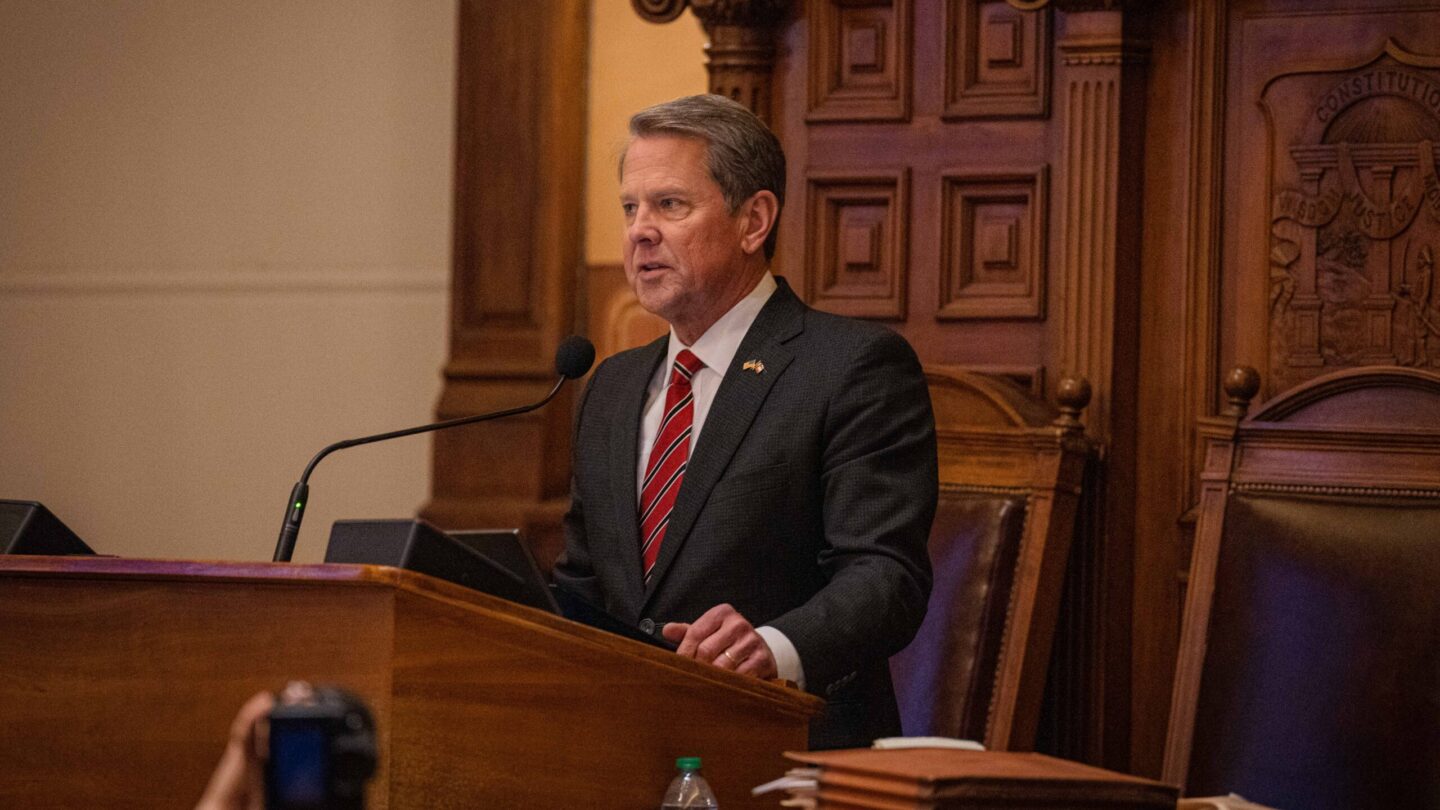Georgia Gov. Brian Kemp on Tuesday vetoed a bill that would have capped tuition increases at public universities and colleges, calling it an infringement on the authority of the state Board of Regents and a violation of the state constitution.
Senators amended House Bill 319 on the final day of the legislative session to say that none of the University System of Georgia’s 26 universities and colleges could raise tuition or fees by more than 3% from the previous year without approval from both houses of the General Assembly.
Kemp wrote in a statement that such a cap could not be imposed unless voters approved a constitutional amendment limiting the powers of the Board of Regents, who oversee the system.
“The Georgia Constitution makes plain the authority to govern, control, and manage the University System and all system institutions is vested in the Board of Regents,” Kemp wrote.
The provision touches on a sprawling dispute in which senators insisted on a $66 million cut to the system’s teaching budget. That’s out of a total budget of $9 billion that includes state money, tuition and fees collected from students, and other revenue.
Senators said universities should cover the shortfall with some of their roughly $500 million in cash on hand.
The dispute was related to a push by Lt. Gov Burt Jones to allow hospitals to be built in rural counties, including his home of Butts County, without state permits. That push was opposed by Marietta-based Wellstar Health System, which owns a hospital in the county that would face competition from a new facility that could be built on land owned by Jones’ father.
Wellstar has also agreed to take over Augusta University’s hospitals, and Jones attacked that deal, which is strongly supported by Kemp, in an apparent attempt to pressure Wellstar. Augusta University earlier this year was given $105 million to purchase a new electronic medical records system. Jones argued that money was an unfair giveaway to Wellstar.
Jones, who is widely believed to be eyeing a run for governor, didn’t back down Tuesday from his fight with Kemp, saying the governor should support a tuition cap.
“With rising living costs and inflation, the General Assembly worked to make college more affordable for hardworking Georgia families, a goal we should all share,” Jones said in a statement. “A 3% annual increase cap makes sense, especially considering the Board of Regents has reserve funds in excess of $500 million. Perhaps their unilateral control over tuition increases should be revisited in future legislative sessions.”
However, costs to students actually fell by a median of 7.6% at state universities and colleges last year because regents eliminated a fee without raising tuition. And regents held tuition flat in four out of six years before that.
Chancellor Sonny Perdue didn’t immediately respond to an email seeking comment. Regents typically set tuition for the following academic year at their April meeting, which will be held this year on April 18 and 19 at the University of North Georgia in Dahlonega.
It’s unclear whether Perdue will propose a tuition increase. Last Thursday, after lawmakers adjourned, he issued a statement calling the $66 million cut “an incredibly disappointing outcome.” Perdue said schools are facing inflation pressures and took a 10% budget cut during the 2021 budget that was not fully restored. He also said not all schools have enough leftover cash to absorb the cut.
House Higher Education Committee Chairman Chuck Martin, an Alpharetta Republican, said no one in the Senate explained why the amendment was attached to the underlying bill, which sought to abolish a loan-servicing agency.
Martin declined to quibble with Kemp’s veto or the governor’s finding that the cap was unconstitutional.
“I can’t say that I would disagree with his interpretation,” he said.









